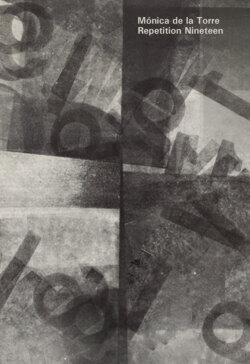Читать книгу Repetition Nineteen - Mónica de la Torre - Страница 14
На сайте Литреса книга снята с продажи.
La sottise
ОглавлениеIt dawned on me, the other day, at the launch
of a former colleague’s book, that if I ever
was a funny poet, I no longer was one.
I’d picked something amusing to read since
the party would be at a bar, and people wouldn’t
want to stay still and listen to us drone on
but instead would be there to drink and celebrate
their friend’s accomplishment, no matter what
they actually thought of his poems; they
were good poems, don’t get me wrong. Alright,
they were somewhat sincere, a bit saccharine,
but that’s beside the point, and, anyway, who cares.
During my reading no one chuckled loud enough
to let me know that my humor had landed.
Granted, it was subtle. My poem had to do
with the people you encounter in hotels when,
if you think about it, you’re doing some of the most
intimate things you could possibly do, except
die, in the company of strangers, always
perfect. As I was saying, I was up on stage,
and couldn’t see anyone. The mic was too big, right
in my face, and when I read in settings like these
all I hear is the distortion of my amplified
voice, which makes me jumble lines and garble
words I have no difficulty pronouncing otherwise.
Automobile, for example, which I can say easily
in Spanish and from now on will always be vehicle.
I was done and the crowd applauded, sort of.
It was the next poet’s turn and everyone around me
started cheering and slapping their thighs,
and then the next poet went up, and told
hysterical jokes about Trump and Ted Cruz
as he read poems that were even wittier.
Everyone was in stitches. That’s when it dawned
on me that perhaps I’m not funny anymore, but what
the hell, how’s that the marker of a work’s ability
to move its audience, I mean, what if Emily Dickinson
were at an open mic delivering the poem about feeling
like a nobody talking to other nobodies and everyone
cracked up, or what if it was Baudelaire,
for that matter, who had to pause up there while reading
the sonnet about nature being a temple sending people
mixed messages, because of the audience’s hoots,
or better yet, imagine Catullus, reluctantly playing
to the crowd with his I love my hate and hate my love.
Why? you ask. All I know is the feeling’s back
again, and it torments me. But, wait, let’s circle back
to Baudelaire. What if he called out the phonies
at a gig and people misheard and exploded
with laughter, thinking he’d said funnies even after
he doubled down and said he wasn’t kidding.
